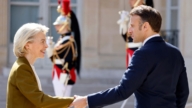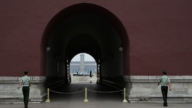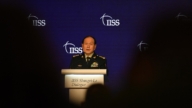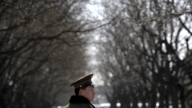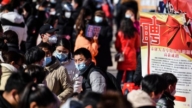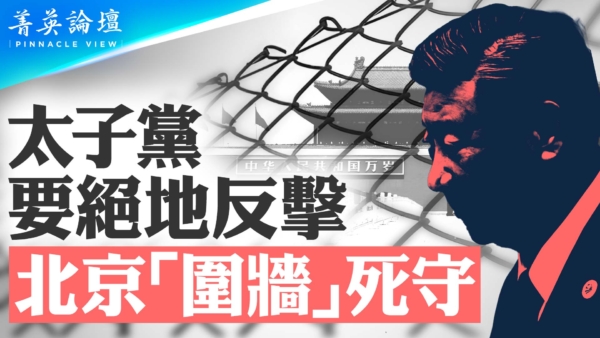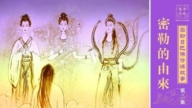【新唐人2012年10月20日訊】距離中共十八大已不足3個星期,目前中南海改革的聲音似乎越來越多、也越來越強,經濟、民生、文化等各個領域都在摩拳擦掌。那麼,到底是中國要跟上世界潮流進入民主法制社會?還是18前打「高射炮」,讓民眾對新政充滿希望?或者,「小打小鬧的」做一些調整,以延續共產黨的統治,讓習近平、李克強從「改革」和「維持一黨獨大」的兩難中突圍出來。下面請看專家分析。
目前中南海發出改革的聲浪,一浪高於一浪,在法制改革後又出來了「兩個凡是」,《國務院關於第六批取消和調整行政審批專案的決定》裡聲稱,凡是公民、法人或其他組織能夠自主決定等的事項,政府都要退出﹔凡是可以採用事後監管和間接管理方式的事項,一律不設前置審批。
這一切好像表明習近平、李克強等人正按部就班進行主政的「熱身」。
而國際輿論對中國的前途持兩種看法,一種認為習近平、李克強會推動進一步的改革開放,甚至包括政治體制改革,以此來對付糾纏中共很久的貪污腐敗,民主、人權不彰等問題,讓中國可以在社會矛盾總爆發之前軟著陸。
另一種看法認為,中共已經改革無力,利益集團阻撓了任何的進步可能性,而腐敗最終將導致社會大動亂,中共這條船將在習近平主政的十年內沉掉。
時政評論家藍述指出,目前中共媒體上所提到的這些改革,還是局限在行政改革層面,談不上政治改革。
時政評論家藍述:「在中共現行的一黨體制之下,政治改革都沒有任何成功的可能,就何況要搞不談政改的行政改革,那就更沒有任何希望了。中共在政治層面的改革之所以不可能有任何進展,是因為中共的文化已經完完全全被時代給淘汰了。」
藍述說,中共槍桿子裡面保政權的黨文化,從根本上是反人道的,加上中共的「無神論」又失去信仰基礎,讓人民仇視神佛,也就不可能得到神佛的護佑,無法從精神文明上營造出盛唐和美國這樣的太平盛世。
有評論指出,因為中國的經濟增長,並沒有像前「世界銀行」副行長林毅夫所預測的,還可以持續20年,而是出現了下滑的趨勢,這種趨勢持續,自然就會喪失以前通過GDP兩位數的經濟增長來掩蓋社會矛盾,延後政治改革的所謂「優勢」,因此,增加了社會矛盾爆發的危機。
藍述認為,中國下一代領導人如果拒絕放棄中共的政治體制,最後不得不面對中國社會的大動盪,民眾將起來徹底推翻中共。
藍述:「不論中共現在的這批領導人願不願意,中共垮臺只是時間問題,而且是一個非常短的時間內就會發生問題,只不過在這個大的形勢面前,如果有一批人願意從中共體制內走出來,那麼,會給中國社會帶來社會成本比較小的社會轉型。」
藍述認為,在巨大的國際和國內社會的壓力之下,中共內部有可能出現象戈爾巴喬夫這樣的人物。
不過政論家伍凡認為,中共放出的改革言論越放越多,也越放越空。伍凡說,目前的輿論是在為18大營造氣氛,讓人們對習近平、李克強抱有期望。
政論家伍凡:「根據他們所公布的資料來分析的話,你還真的能上當、受騙。但是你把它的東西拿來一層一層剝開來看,就不是那麼回事啦。它們不想改。它們要維持共產黨這個專政,這是第一,要保留共產黨這個體系,在有些地方做些小改小鬧,那叫做『行政改革』,不是政治改革。」
北京國情內參首席研究員鞏勝利希望世人在談論中國時,把中共和中國分開。他說,告別獨裁,走向民主,是世界的大趨勢,不過中國改革千頭萬緒,如果不先廢除「共產黨」,改革寸步難移。
採訪編輯/劉惠 後製/王明宇
What is Behind Zhongnanhai’s Claims of Reform?
The 18th National Congress of the Chinese Communist
Party (CCP) is to be held within three weeks.
Voices from Zhongnanhai alleging to make reforms
continue to spread through official medias.
Reforms were reported to involve various areas,
including the economy, livelihood and culture.
Is China really keeping up with
the worlds trends in democracy?
Or is it just CCP hype to create public
expectation for its new leadership?
Is it also perhaps the regime’s tactic to keep maintain
CCP rule by making minor changes in some fields.
Is this helping Xi Jinping and Li Keqiang
break through this dilemma, to make reforms or to maintain CCP one-party rule?
In recent months, Zhongnanhai has continuously
alleged that it will implement reforms.
In suggesting it will make legal reforms, the regime
released a new version of the “Two Whatevers",
a statement which originally referred to undertaking
Chairman Mao’s wishes without question.
The CCP State Council asserted that the
government shall end its control over whatever
issues that citizens, legal persons or other
organizations can exercise their own discretion.
No pre-approval shall be made for whatever items that
can be supervised either retroactively or indirectly.
All these seem to be a “warm-up" for the new CCP
leadership to take office, led by Xi Jinping and Li Keqiang.
Internationally, the public holds two
point of view on China’s future.
The first point of view believes that Xi Jinping and Li Keqiang
will promote opening-up, including political reform.
In this way, Xi and Li will address the issues
that have long entangled the CCP.
These issues include corruption,
democracy and human rights.
This will offer China a soft landing before unleashing
a firestorm of social conflicts, according to this view.
Another view holds that the CCP
is helpless to make any reform.
The interest groups are thwarting all possible progress.
CCP corruption will finally cause large social turmoil.
The CCP regime boat will sink within
the decade under the reign of Xi Jinping.
Critic Lan Shu says that alleged CCP reforms in
state media are still at the level of administration.
They do not represent political reform in a real sense.
Lan Shu: “It’s not possible at all to make
political reforms under one-party CCP rule, let alone its so-called administrative reform.
There’s no way for the CCP
to make successful political reform.
The core reason is that the CCP culture and mode
of thinking have completely been weeded out.”
Lan Shu explains that CCP party culture is against humanity.
It embraces the view that resorting to
violence to hold onto the regimes power.
Besides, the CCP’s “atheism" totally does not believe in gods,
Thus, those Chinese people wouldn’t be protected by heaven.
This is why Communists China wouldn’t achieve high level of
prosperities such as the Tang dynasty or the U.S.A.
Some observers said that China’s economy did not
follow Justin Yifu Lin’s prediction, but is slowing down.
Lin, the World Bank’s ex-Vice President, forecast that
China could maintain 8% growth for the next 20 years.
The downward trend exposes that in the past, the truth that
social conflicts were covered up by double-digit GDP growth.
The slowdown also downplays the role of so-called
“superiority" of implementing political reforms.
This will fuel the potential explosion of social
conflicts, according to commentaries.
Lan Shu warns the CCP’s new leadership team.
If they still keep holding onto the CCP political system,
large social unrest will erupt, overthrowing CCP rule.
Lan Shu: “It’s just a matter of time for the CCP
to collapse, which is beyond its leaders’ willingness.
It will occur very shortly, I believe.
But if some people inside the CCP system choose
to desert it by quitting the CCP, that will lower the risk in making social transformation.”
Lan Shu thinks that under huge international and domestic
pressure, figures like Mikhail Gorbachev may emerge.
Political commentator Wu Fan remarks that
CCP reform claims only show its flimsiness.
The regime is creating a positive
atmosphere for its 18th Party Congress.
These official assertions were released to create
public expectation toward Xi Jinping and Li Keqiang.
Wu Fan: “You’ll be really fooled by it if you
just read the information that is released.
But you can discern the truth after you dissect the remarks.
They’ve never really wanted to make political reform.
It insisted to maintain the CCP one-party
rule and maintain the system.
So, their trivial changes in some areas can only be called
‘administrative reform’, instead of true political reform."
Gong Shengli, Chief Researcher of Beijing-based
periodical Internal Reference on the State of China, reminds the public to distinguish the CCP from China.
Gong Shengli says that the world trend is deserting
dictatorship and moving towards democracy.
Purging the CCP should be the top priority of China’s reform.
Otherwise, it will be virtually impossible for any
other reform, according to Gong Shengli.


